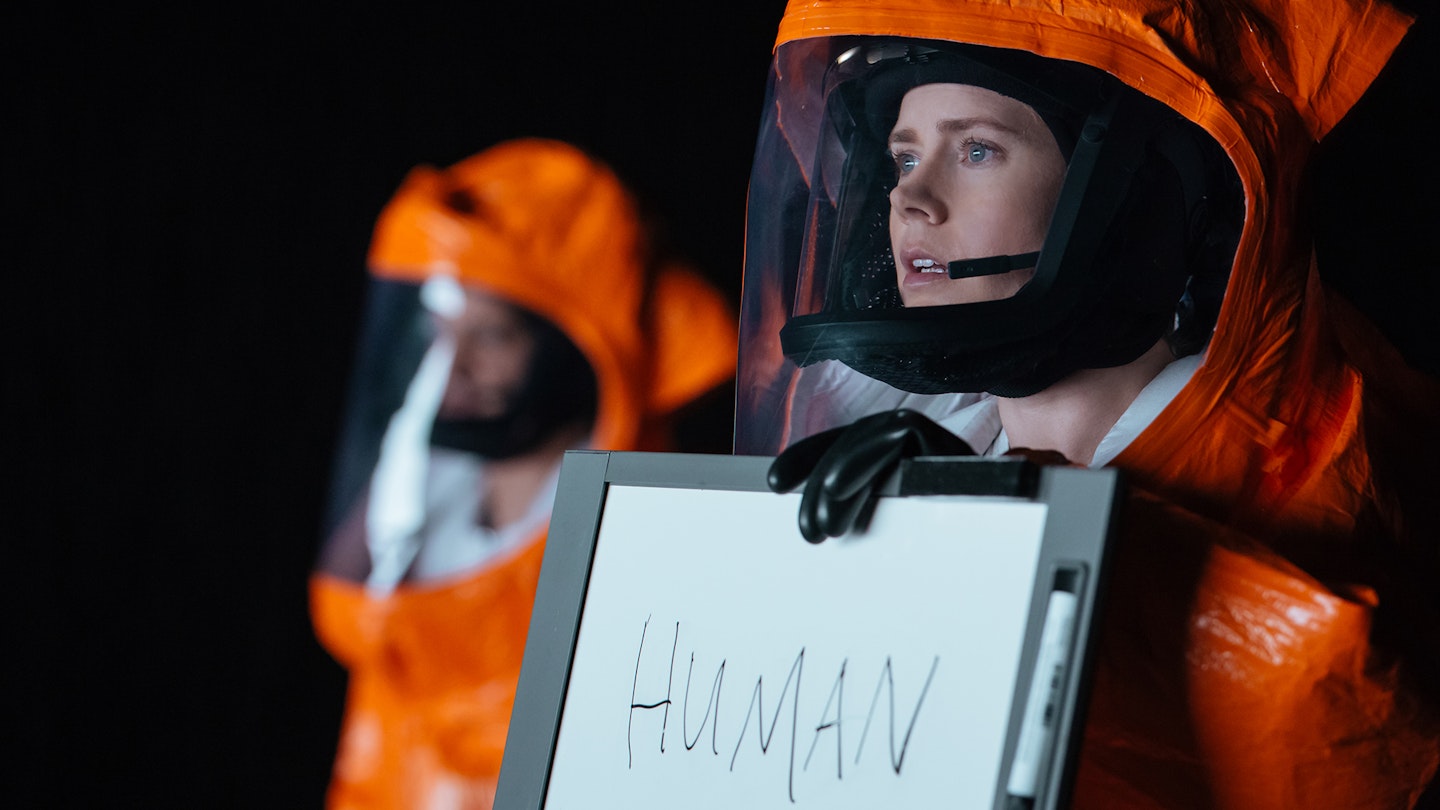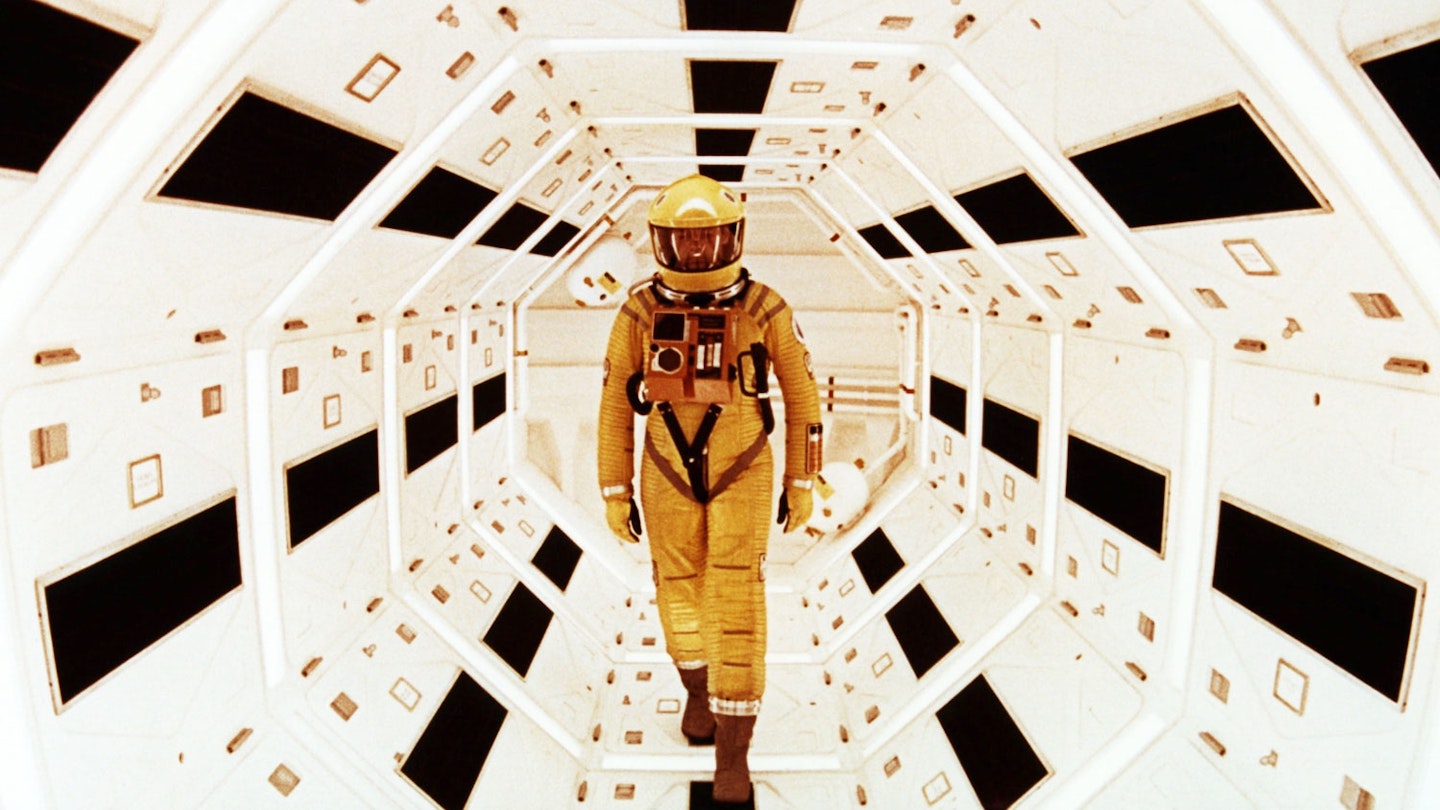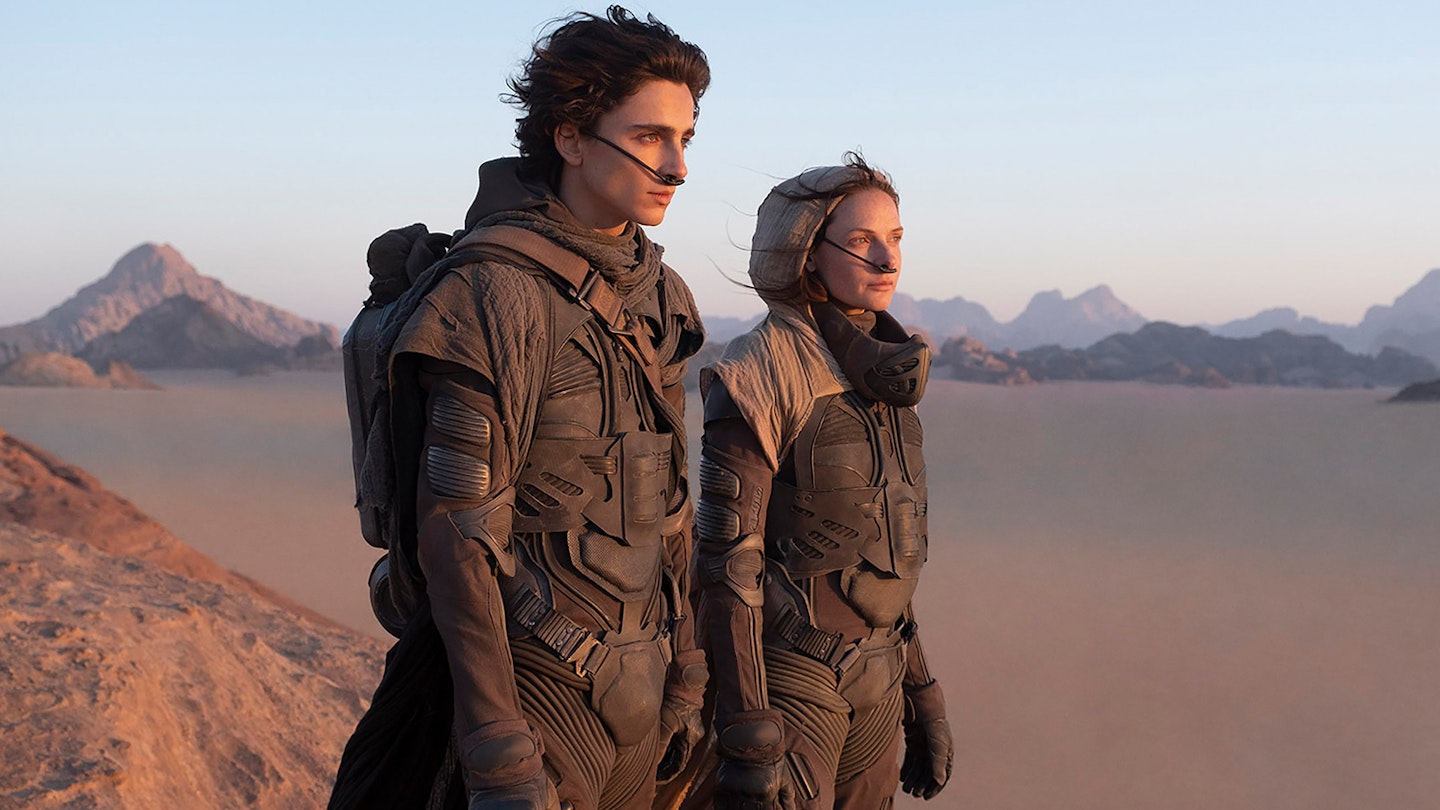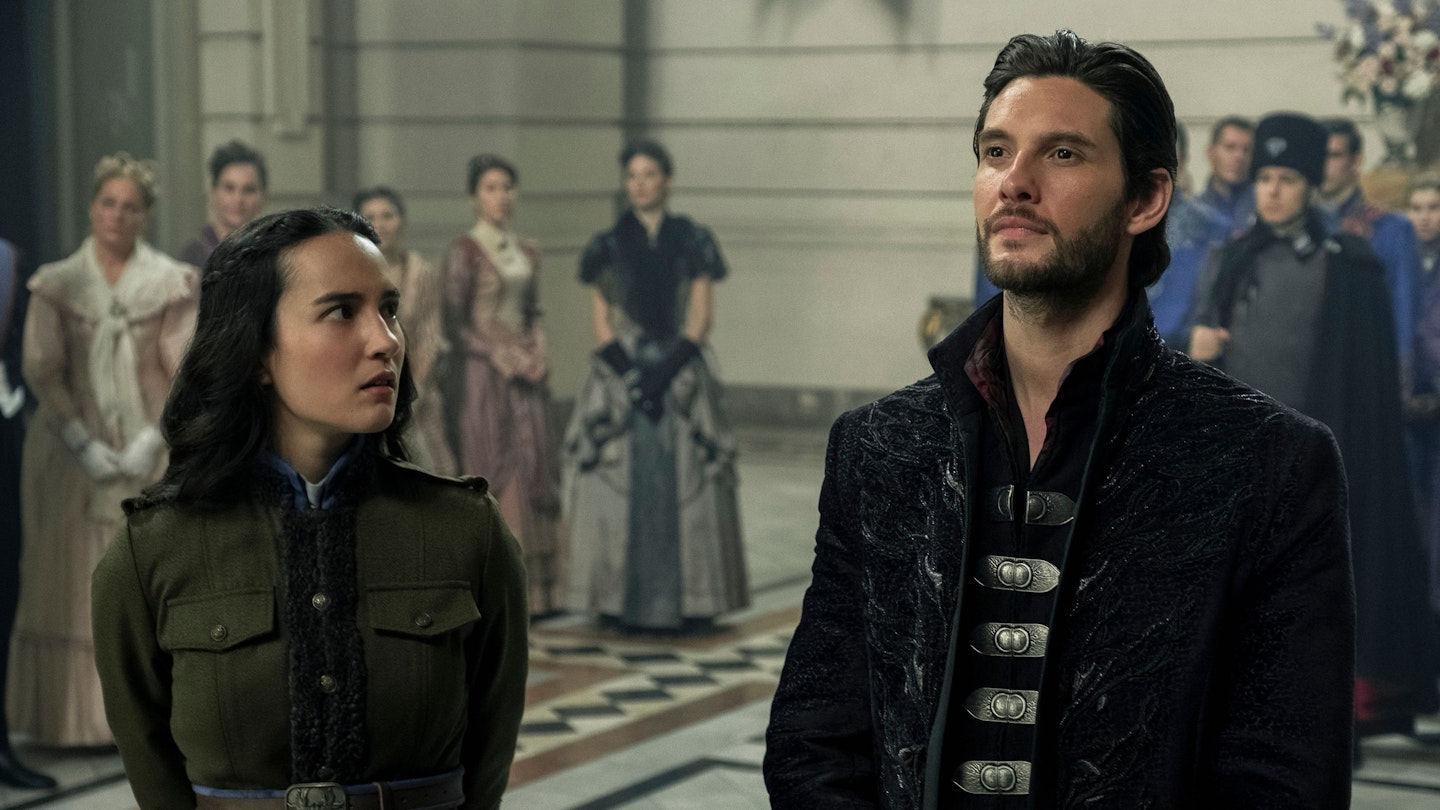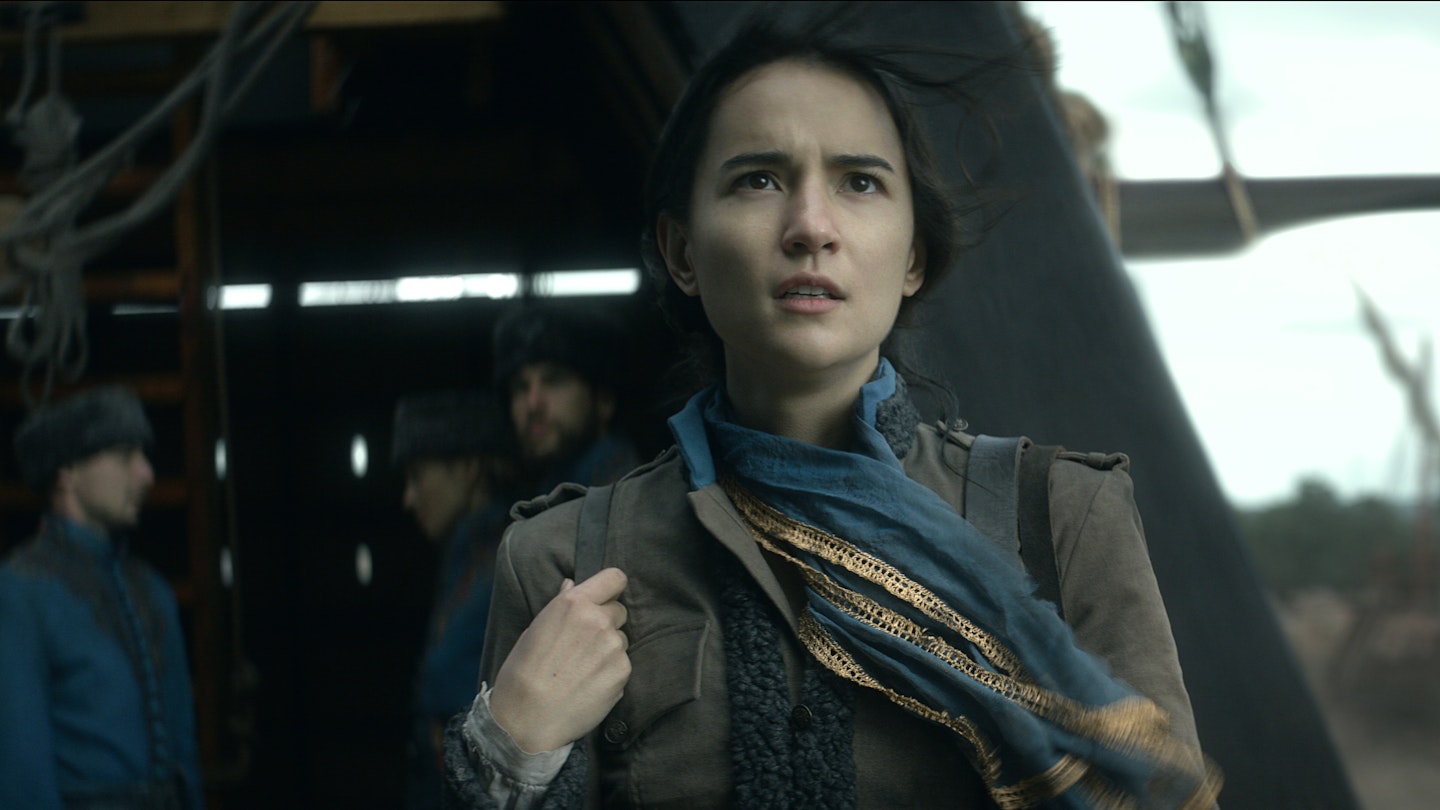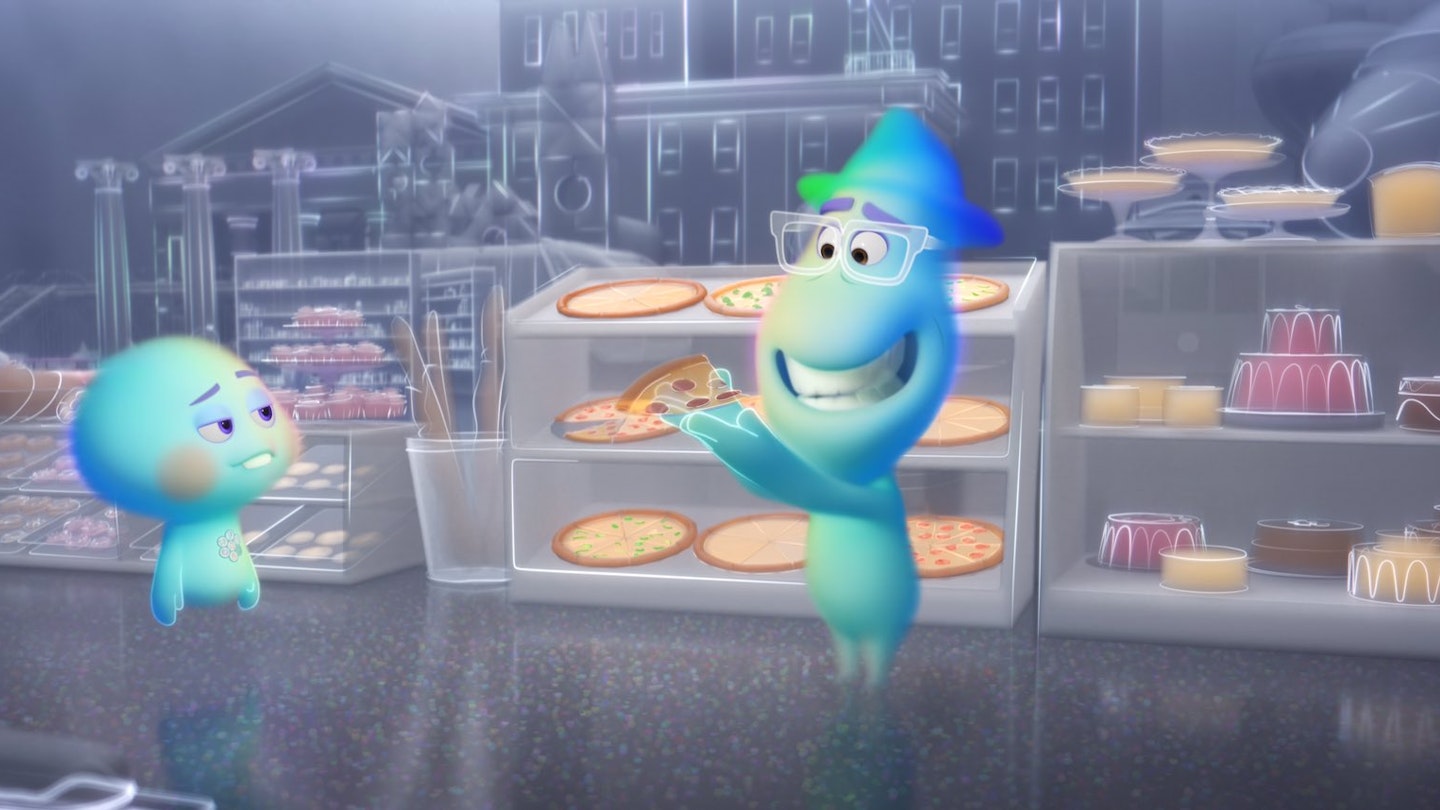If you need a deeply thoughtful and impressive new take on a familiar old genre (and in this era of identikit sequels, we clearly do), then Denis Villeneuve is your man. The French-Canadian director gave the drug-war thriller a violent shake-up with last year’s morally murky Sicario, and before that he turned the kidnap drama on its head with Prisoners. Now we get his take on alien visitation. Arrival is Villeneuve’s The Day The Earth Stood Still or Close Encounters Of The Third Kind, and somehow he makes it true to the tropes while also feeling like something new.
Like all the best sci-fi, Arrival has something pertinent to say about today's world; particularly about the importance of communication.
It helps that Villeneuve and his creative team have made their extra-solar visitors as truly ‘alien’ as possible, and thereby ensure this first-contact narrative is inventively, fiendishly and (you’d imagine) realistically problematic. The alien craft, or “shells”, are immense, lens-shaped, black-rocky obelisks which levitate noiselessly several metres above the Earth’s surface, never actually touching terra firma. Every 18 hours a hatch opens in the shell’s lower tip, admitting a delegation of Homo sapiens into the gravity-bending interior. The human visitors, carrying an achingly symbolic canary in a cage, arrive at a rectangular audience chamber in which they’re separated from a sea of ominous white mist by a transparent wall. And from the swirling space-fog they emerge: the eerie, graceful “heptapods”, resembling a hybrid of squid, spider, whale and mangrove. The tips of their gnarled, finger-like limbs, it transpires, peel open into starfish-like appendages which ejaculate ink that flows into lazily floating, coffee-mug-stain symbols. This is the aliens’ language. It’s way beyond “klaatu barada nikto” — or even Close Encounters’ five-note salutation.
They have something to say, and the race to figure out what it is gives the film both its tight structure and pulsing momentum. Without a single planetary leader to be taken to on our divided world, the heptapods have suspended themselves over a dozen points around its surface. But why 12, exactly? And why those specific locations? The mysteries layer up, though despite all the heavy portent, Eric Heisserer’s script isn’t without levity — at one point physicist Ian Donnelly (Jeremy Renner) correlates that all the arrival sites are in places where Sheena Easton had a hit in 1980. Perhaps they’re just inter-galactic fans of 9 To 5’s perky pop stylings.
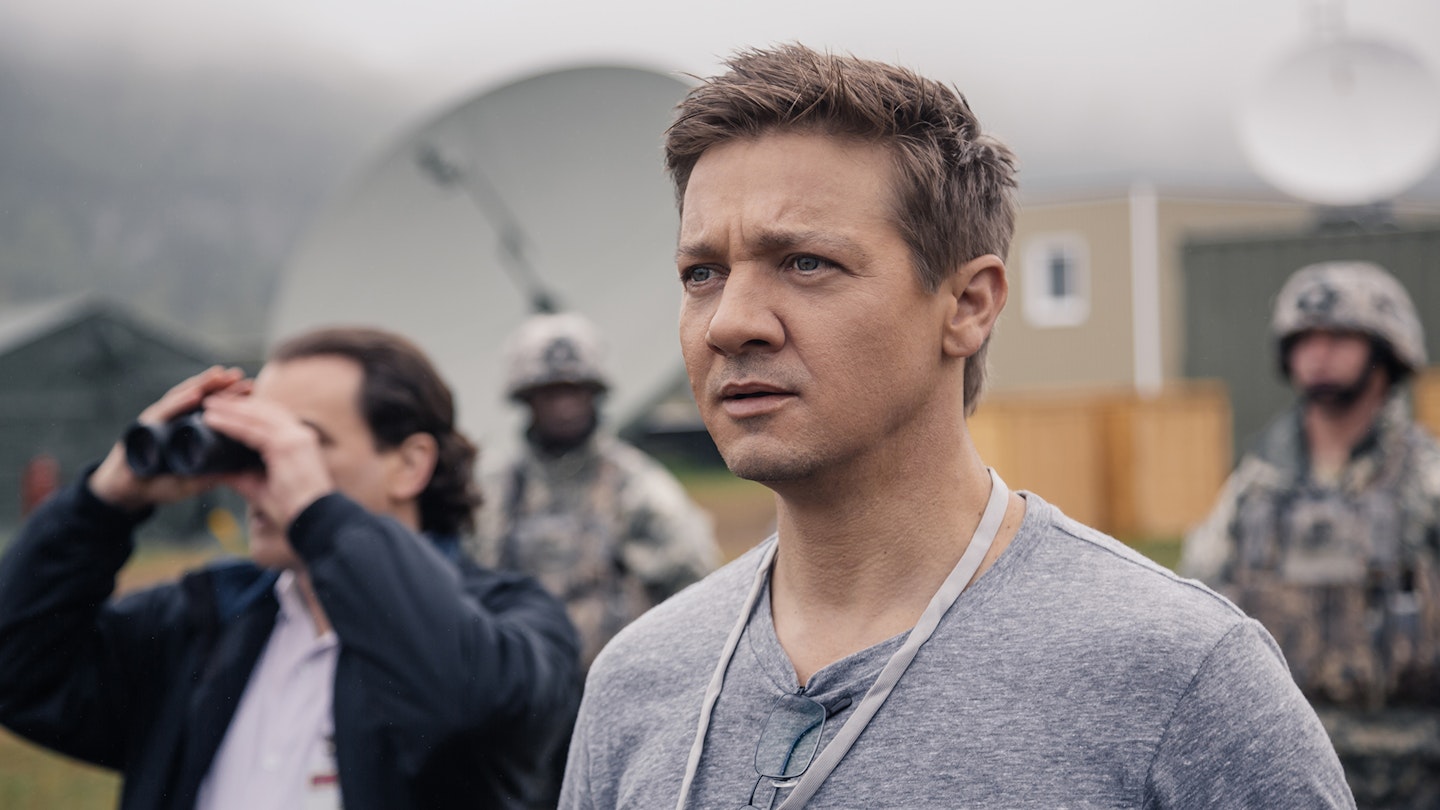
While the Chinese and Russians get stroppy and sabre-rattley, the Americans put linguist Dr Louise Banks on the case. Like all good movie eggheads, she’s both intensely brainy and able to distil her science down into digestible soundbites for the sceptical military-types, represented by Forest Whitaker’s weary Colonel and Michael Stuhlbarg’s CIA prick. She also comes with some outsize emotional baggage, connected with the death of a loved one.
But before you roll your eyes over the cliché of the grieving hero, be reassured this particular emotional thread is ingeniously connected with the macro-trauma playing out around her. Also, in finding an actress to sell it convincingly, Villeneuve could have done no better than Adams, who negotiates and balances Louise’s frustrations with the army wonks, her bewilderment/awe at meeting E.T.s, and her personal tribulations with subtlety and absorbing naturalism.
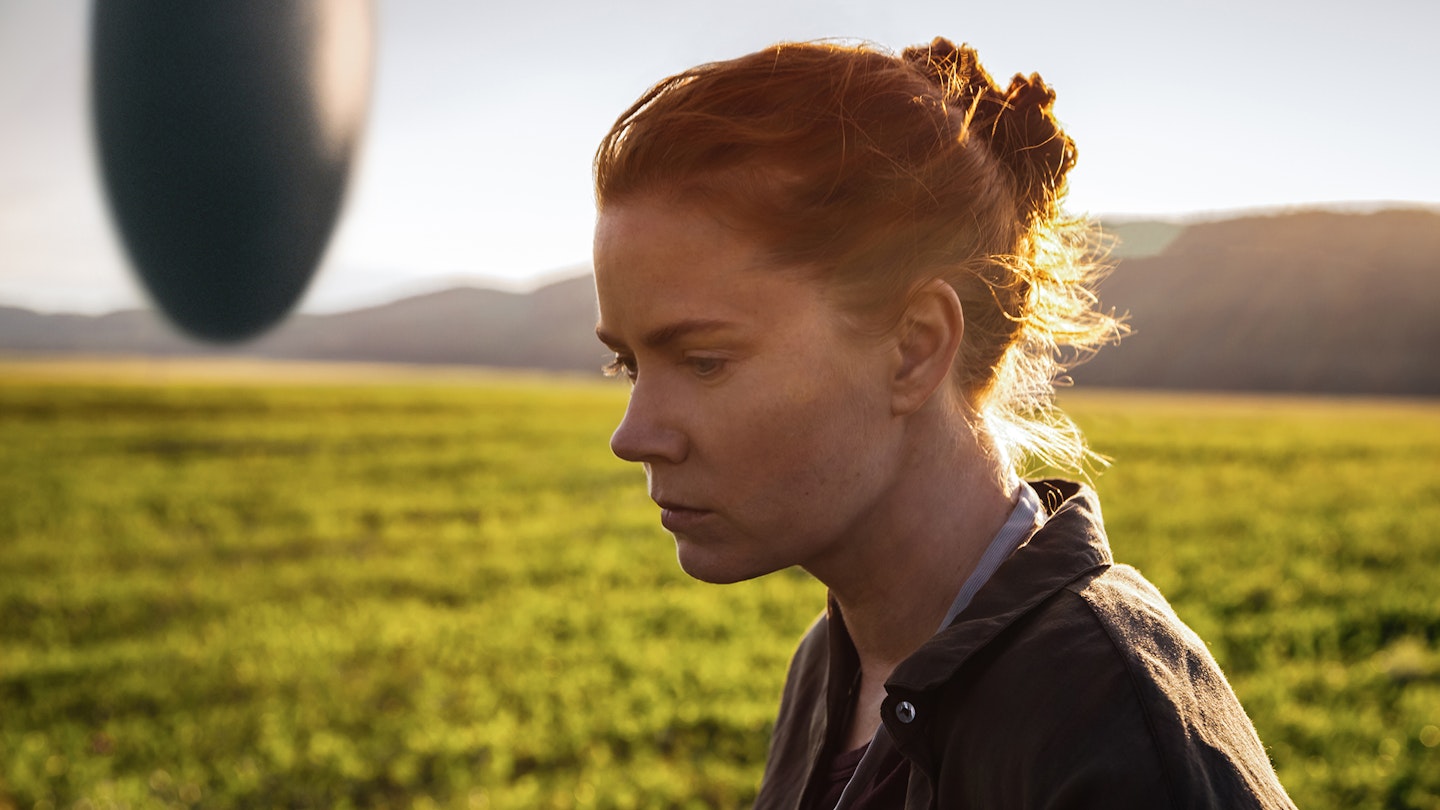
On the exterior, Louise is the calm, albeit shaky, eye of this interplanetary storm. On the interior rages a silent storm of her own, a fugue of memory fragments that comes to twist and bend like a psychic cyclone as she begins to decode the visitors’ inky vernacular. Adams is the film’s quiet, luminous heart, and Villeneuve spends more time focusing on her face than he does the aliens or their mysterious vessels; we’re not even allowed to see the first shell properly until Louise herself witnesses it, and quite right, too.
Arrival is a beautifully polished puzzle box of a story whose emotional and cerebral heft should enable it to withstand nit-picky scrutiny. And like all the best sci-fi, it has something pertinent to say about today’s world; particularly about the importance of communication, and how we need to transcend cultural divides and misconceptions if we’re to survive as a species. An ideal that shouldn’t need any translation.
